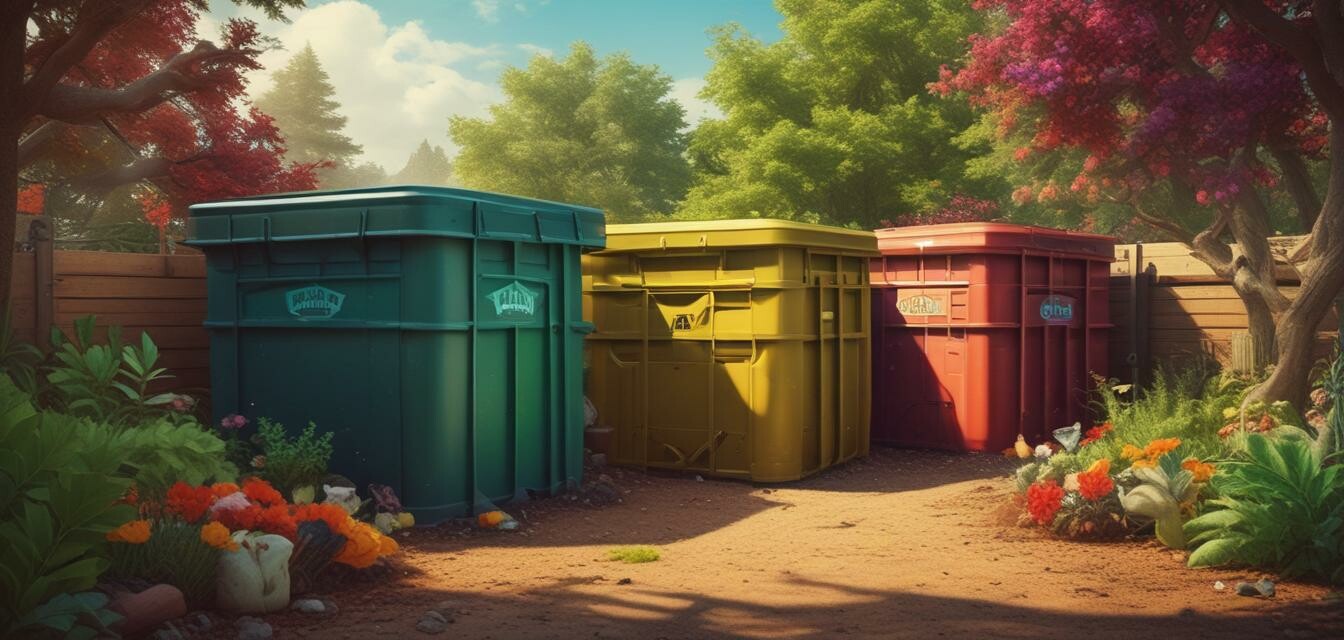
Environmental benefits of Bokashi composting
Key takeaways
- Bokashi composting is a closed-loop system, reducing waste and improving soil health.
- This method allows for composting of a wider variety of organic materials compared to traditional composting.
- Bokashi composting is faster and uses anaerobic fermentation, minimizing odor issues.
- It supports sustainable gardening and can help community composting initiatives.
In an era where sustainability is not just a buzzword but a necessity, home composting methods play a crucial role in reducing waste and nurturing our environment. Among these, Bokashi composting has garnered attention for its unique approach and various ecological advantages. This article explores the environmental benefits of Bokashi composting compared to traditional composting methods.
What is Bokashi composting?
Bokashi composting is a fermentation-based method that utilizes anaerobic bacteria to break down organic waste. Unlike traditional composting, which requires oxygen, Bokashi composting takes place in a sealed container, allowing the waste to ferment. This method is not only effective but also very versatile, as it can handle different types of organic materials.
The process of Bokashi composting
- Collect organic waste: All types of food scraps (even dairy and meat) can be collected.
- Layering: Place the waste in a Bokashi bin, alternating with Bokashi bran.
- Fermentation: Seal the bin for 2-3 weeks, allowing fermentation to occur.
- Soil amendment: After fermentation, the contents can be buried in the soil, where it will transform into nutrient-rich compost.
Environmental advantages of Bokashi composting
1. Converts a wider range of waste materials
While traditional composting can struggle with certain organic materials like dairy or meat, Bokashi composting is much more accommodating. This means less food waste going to landfills, which significantly benefits the environment.
2. Reduces methane emissions
Landfills release methane gas when organic waste decomposes anaerobically. By composting at home with Bokashi methods, you can help divert waste from landfills, thus reducing methane emissions.
3. Enhances soil health
The fermented Bokashi compost enriches the soil with beneficial microbes and nutrients. This can lead to healthier plants and a more vibrant garden ecosystem. Implementing this alongside traditional gardening practices enhances sustainability.
| Benefits | Bokashi Composting | Traditional Composting |
|---|---|---|
| Types of waste accepted | Wide variety, including dairy and meat | Limited to fruits, vegetables, and grains |
| Speed of process | Quicker (2-3 weeks) | Slower (typically several months) |
| Odor management | Minimal odor during fermentation | Can attract pests and produce odors |
| Methane emissions | Reduces by diverting waste from landfills | Contributes when waste decomposes in landfills |
| Final product | Rich pre-compost that improves soil | Finished compost for gardens |
Supporting sustainable gardening practices
Using Bokashi composting not only benefits your garden but also aligns with sustainable gardening practices. The use of homemade compost reduces dependency on chemical fertilizers, which can harm the environment. Furthermore, enriched gardens attract wildlife and promote biodiversity.
Community impact of Bokashi composting
Bokashi composting can play a pivotal role in community composting initiatives by encouraging more households to participate. By engaging community members, we can foster a sense of shared responsibility toward waste reduction and environmental conservation.
Conclusion
In conclusion, Bokashi composting represents a significant step forward in sustainable waste management and gardening. With its ability to handle diverse organic materials and create nutrient-rich soil, it offers remarkable environmental benefits over traditional methods. As awareness grows, integrating Bokashi composting into households and communities can support a greener planet.
Pros
- Handles a wide variety of organic materials.
- Faster process compared to traditional methods.
- Minimizes odors and pest attraction.
- Supports soil health and sustainable gardening practices.
Cons
- Requires an upfront investment in a Bokashi bin.
- Some people may find the idea of fermentation unappealing.
- Needs to be buried or further processed before use in gardens.
Learn more
For those interested in exploring other composting methods, you might want to check out our detailed guides on Bokashi composting, open air composters, or compost tumblers. Additionally, stay updated with the latest trends in composting by following our composting trends blog section.